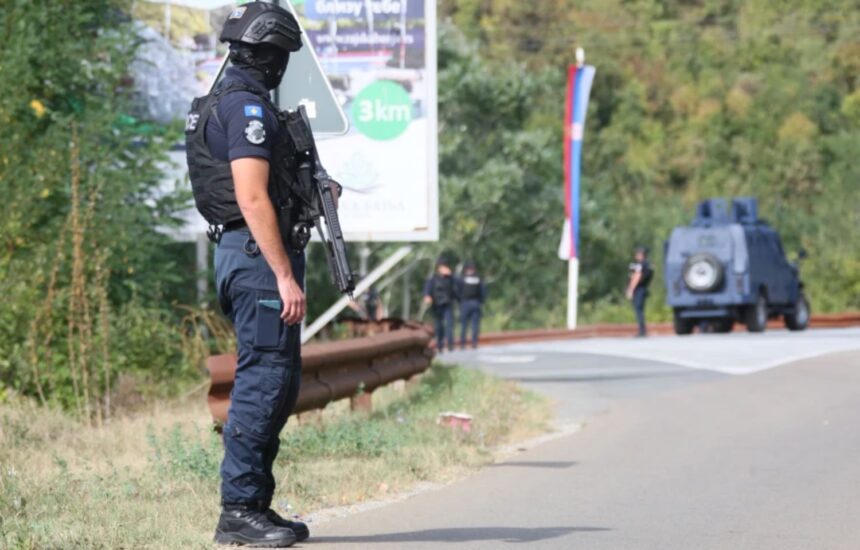Kosovo’s draft strategy for 2025–2029 identifies Serbia as a potential source of terrorism and highlights challenges in managing their shared border due to political tensions.
Kosovo’s Ministry of Internal Affairs has drafted a National Strategy for Integrated Border Management (2025–2029), emphasizing Serbia as a potential source of terrorism and criminal activity. The document outlines security challenges stemming from unresolved political disputes and Serbia’s refusal to recognize Kosovo’s borders, which facilitates illegal cross-border activities.
Key Challenges Identified
The draft strategy highlights several risks:
- Unregulated Border Activities: Political disagreements with Serbia hinder effective border control, allowing transnational organized crime networks to thrive.
- Cross-Border Terrorism: Serbia is identified as a potential source of terrorist acts, with previous incidents, such as the September 2023 attack in Banjska, underlining the risk.
- Crime and Smuggling: Trafficking of humans, drugs, arms, and explosives, along with irregular migration, pose persistent threats.
Recent Security Incidents
- September 2023 Banjska Attack: A paramilitary group led by Milan Radoičić crossed into Kosovo from Serbia, killing police officer Afrim Bunjaku.
- November 2023 Ibar-Lepenac Canal Attack: Kosovo accused Serbia of orchestrating this act of sabotage.
Delayed Cross-Border Agreements
The political stalemate has also stalled the operationalization of border crossing points (BCPs) agreed upon in the 2013 Brussels Agreement. While six new BCPs were planned with EU funding, only two—Merdare (opened in 2018) and Mutivodë (2019)—are functional. Four additional BCPs remain incomplete due to Serbia’s inaction.
Border Length and Demarcation
Kosovo’s border spans 743.556 kilometers, including 380.068 kilometers shared with Serbia. While border demarcation has been completed with Albania, North Macedonia, and Montenegro, it remains unresolved with Serbia.
Moving Forward
The strategy calls for enhanced measures to address these challenges, including:
- Strengthening cross-border security mechanisms.
- Finalizing and operationalizing all planned BCPs.
- Increasing collaboration with international organizations to counter terrorism and transnational crime.
Kosovo’s efforts to manage its border with Serbia will play a critical role in ensuring national security and curbing threats posed by unresolved disputes.







